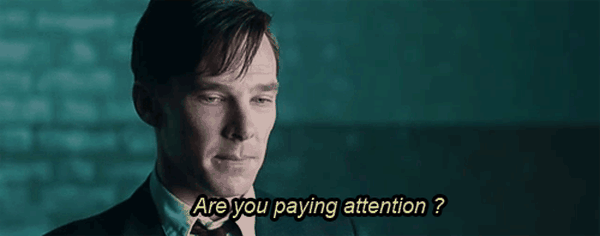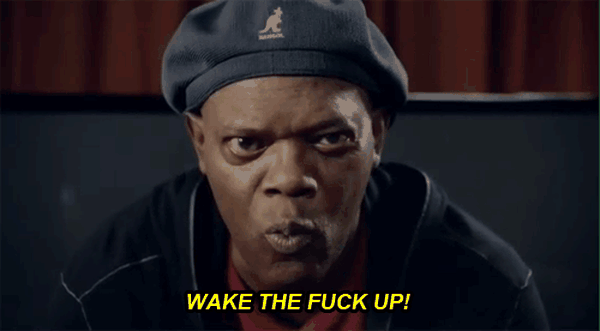Job-hunts are stressful simply based on the demographic that participate in these hunts. Yes, we speak of the desperate jobless or job-hating folk that are looking for hope and inspiration elsewhere. I would know, I was one of them a few months ago. *meaningful look*
Not much can de-stress you in the middle of an ongoing search for employment like the feeling of being prepared in case the right opportunity shows up. This preparedness has a street name – The Resumé. And here we have, inspired from Mashable among other sources, a complete guide to nailing that mother.

What’s important in a resumé?
Your most recent engagement is what gets the most attention in your resumé.
It is very recruiter’s primary concern how your most recent position is relevant to the position they’re hiring for.
How important is the company’s name, you ask? Very.
Recruiters have been doing this a long time and have developed a sense of judging with fair accuracy your stamina, flexibility among other things – largely based on the frame of reference the place of your previous work provides.

Is there a meaningful progression your career has had? Make sure it comes across in the resumé.
For instance, draw out the increasing levels of responsibility you have advanced through over time. And make sure the responsibilities you’ve listed match the requirements listed by the recruiter.
Which brings us to keywords.
Ctrl+F is used on resumés more often than anyone will admit. Certain words or phrases are significant to whether or not your profile will stay in the running. Find out what words they’re liking to Ctrl+F among the applicants for this position and use them cleverly. These important words will get the meat of your resumé the attention it deserves.

Give them the necessary information and give them the truth.
They need to know your current location and whether or not you are willing to relocate (if the job happens to be in a different location). And as far as the truth goes, it really is the best way to go. Don’t exaggerate titles or responsibility. The truth comes out eventually. And gaps need to be explained, creatively and if possible in a way to impress. Let ’em know if you took a a few years off to raise your children or to try your hand at a business venture! Omission only makes recruiters wonder, if not dubious of your drive altogether.
The overall organization of this document CANNOT be compromised.
Spelling, grammar, ease of access, clear and concise presentation of relevant ideas is paramount. Any recruiter would have concerns if your skills in written communication aren’t enough to hold their attention beyond the first three bullets. The initial less-than-25-second analysis will leave you in the ‘Rejected’ pile if your resumé has troubles on this front.

A more in-depth read of the resumé will take place at a later point and only if the recruiter already knows that they like the candidate. A candidate is flagged for follow up immediately after the very brief first interaction with their resumé.
What isn’t important?
Your education is certainly not the most crucial element in your resumé, by a long shot.
We tend to believe that our education, those few 90-something percents that we secured back in the day will tip the scales in our favour. But to be honest, except in the case of fresh graduates, where experience is severely lacking, recruiters barely spend any time on this section of the document. With the few industry-based exceptions where a certain pedigree (and therefore school) of employees is being sought, experience most always trumps education!

Fancy formatting. Really, that’s just fluff.
While no one can deny the appeal of a carefully formatted, aesthetically pleasing resumé, it will not in any way make up for the lack of experience.
Steer clear of uncomfortable personal details that are irrelevant to the position.
Some CVs include personal details like family status, citizenship even height or weight. Some even include photographs. Keep these to yourself. Keep it professional. A resumé should only include information that pertain to your professional history. Nothing more, nothing less.

Other Dos and Don’ts to keep in mind:
Do – Include links to your active online presence of any kind that is likely to portray you in a favourable light for the role you seek. Everything – personal domains, blogs, Twitter handles, Quora profiles. It makes them see you as a connected and proactive individual. What’s more, recruiters actually enjoy this part of the resume browse – for the possibility of chancing upon something interesting. So if you’ve got something that might interest them, INCLUDE IT.
Do – Bring some personality into the resumé. Throw in a joke, make it your own in some way, and show em you know the industry – point is, stand out. This isn’t to say it should in any way compromise on the professionalism of the work experience details. But tell your story, and tell it well.

Do – List your key personal passion projects, if any. How do you channel your passion for the industry outside of the work space? A great way to show em what inspires and drives you, and at the same time, impress their pants off.
Do – Keep the document concise and relevant to the application. No recruiter has the time to go through pages and pages of the competitions you won in high school. Lose their interest, lose the job. It’s that simple. And while we’re on this, lose the ‘Objective’ on top of your resumé! They know why they’re reading it!
Don’t – Use MS Word resumé templates. Recruiters have been staring at those for ages. It’ll only increase your odds of getting lost in the crowds.
Don’t – Write resumés in first person. It comes off as tacky resumé-writing unless done terribly cleverly.
Needless to say, these are simply guidelines. They need to go with your charming wit and unparalleled skill. You now have all the help I wished I had in my time of frantic job-hunting. Go and conquer the professional world, you awesome SOBs!


















